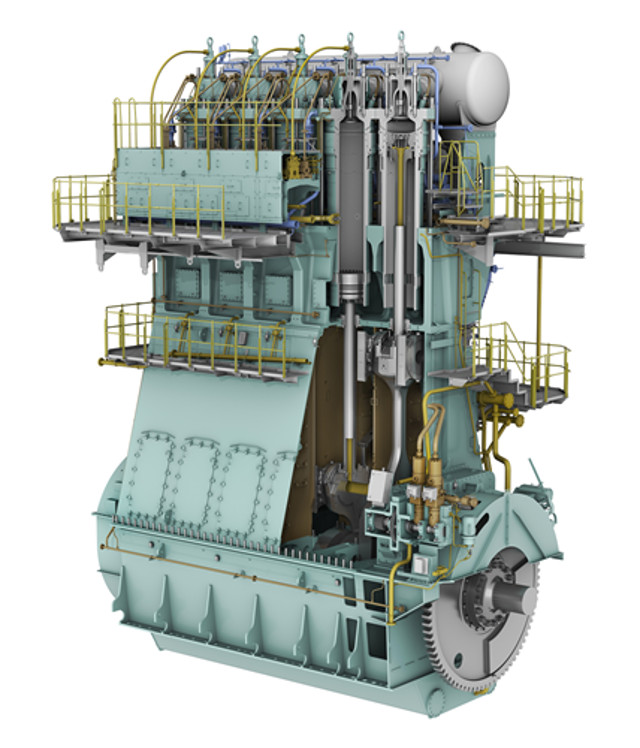The market for fuel-efficient low-speed two-stroke engines is vibrant, and will continue to gather pace with IMO Tier III regulations from 2016, and also the worldwide NOx abatement demands. Modern engines also need to be able to cope with the ever-decreasing quality of residual fuels available, as well as the ability to operate in dual-fuel (DF) mode. Winterthur Gas & Diesel (WinGD), as the leading developer of low-speed two-stroke marine engines since 1898 under “Sulzer” name, will present the latest innovative technology at CIMAC congress this year for what is essentially required by today’s merchant vessels.
 In total, eight papers will be submitted to the congress, showing the experience and expertise that WinGD has to offer, and its commitment to producing strong and efficient two-stroke engines.
In total, eight papers will be submitted to the congress, showing the experience and expertise that WinGD has to offer, and its commitment to producing strong and efficient two-stroke engines.
The first of the featured papers will be ‘The two-stroke low-pressure dual-fuel technology: from concept to reality‘. As LNG powered vessels are gaining popularity, and with IMO Tier III targets in mind, the development of WinGD‘s low-pressure dual-fuel technology achieves emissions levels far below IMO Tier III limits. A basic concept first presented at the 2013 CIMAC conference is now a reality, and in commercial operation on a number of varying bore size Generation-X engines. Based on the lean-burn Otto-cycle combustion process, these results are achieved without additional exhaust gas after treatment.
Another important paper to be presented will give an insightful overview of the development of the modern low-speed two-stroke marine diesel engine from the engine designer’s point of view. Taking into account the current market requirements for power and speed, as well as efficiency, the presentation will discuss many critical elements of the design process.
NOx abatement is a major topic at the moment, and high on the list of presentations will be technologies such as Selective Catalytic Reduction (SCR) technology. While traditionally installed mainly on four-stroke diesel engines, SCR is being developed by WinGD for efficient use on two-stroke engines.
With training of ships staff an important area for development, WinGD will also present a paper outlining its commitment toprovide modern training methods and aids that will satisfy customers’ needs and expectations. The “W-Xpert Simulator” will play a key role in providing self-learning training methods which are quick, intuitive, cost efficient and motivating, and will help ship owners to remain flexible and competitive in the market. The change in STCW regulations (Standards of Training, Certification and Watchkeeping for Seafarers) allowing new methods for demonstrating competence now makes provision for examination and assessment of evidence based on approved simulator tests.
Mr Dominik Schneiter, Vice President of Research & Development, commented: “WinGD, starting powering the merchant shipping already since 1898, are very excited to present these papers at 2016 CIMAC in Helsinki, and look forward to an exciting and lively discussion of all presentations. Our senior experts will be glad to provide additional information throughout the congress about WinGD’s technology and projects.”
Source: WinGD